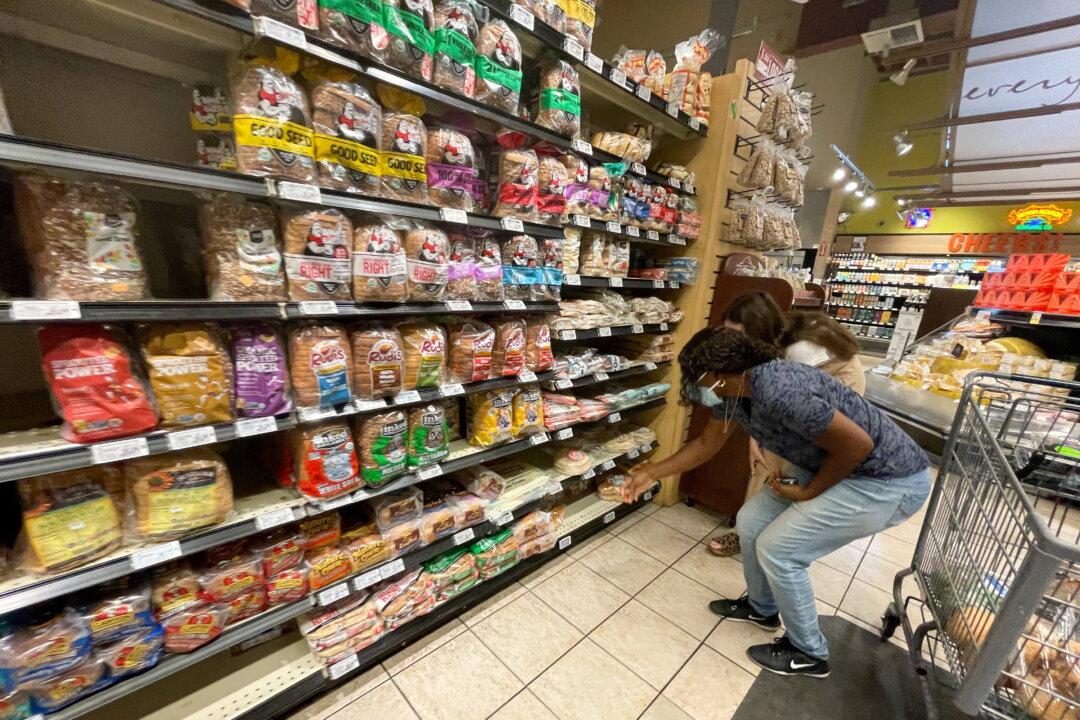An increasing number of Americans anticipate that their grocery bills will increase in the future, according to a new poll by Rasmussen Reports published on Aug. 9.
The survey of 1,000 U.S. adults was conducted between July 24–25, and the margin of sampling error is +3 percentage points at a 95 percent level of confidence.




